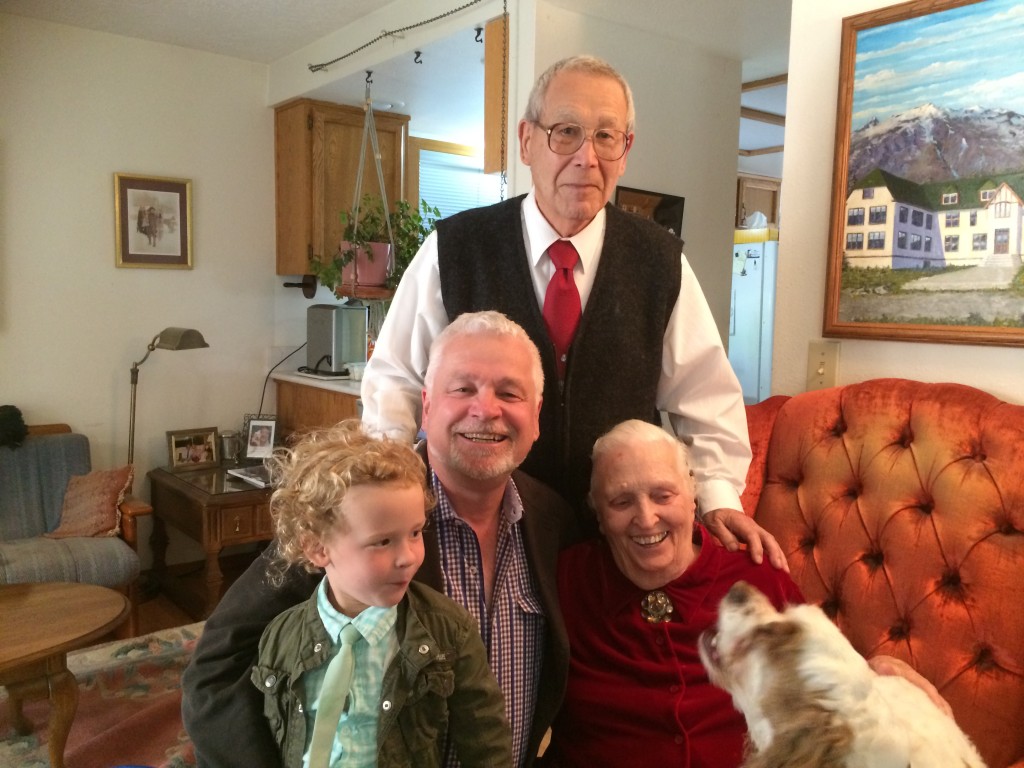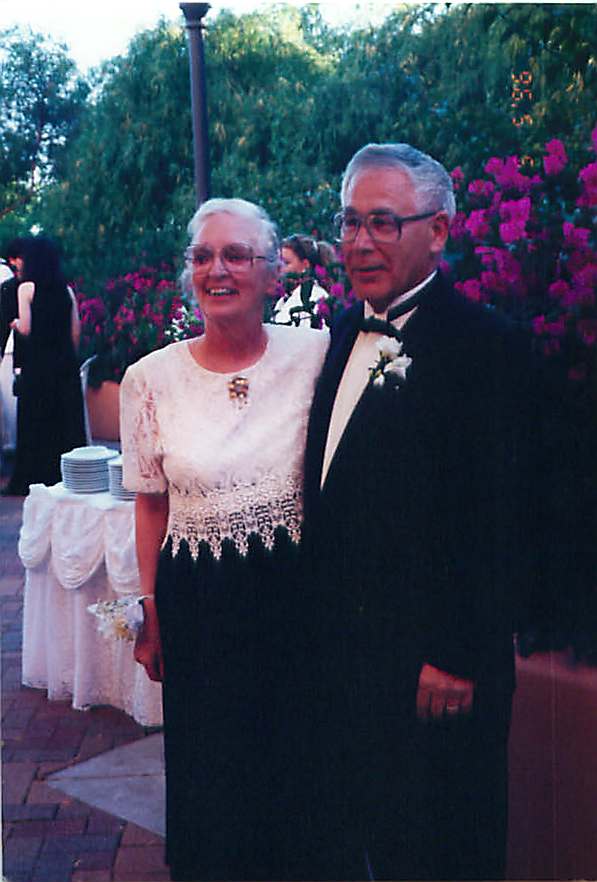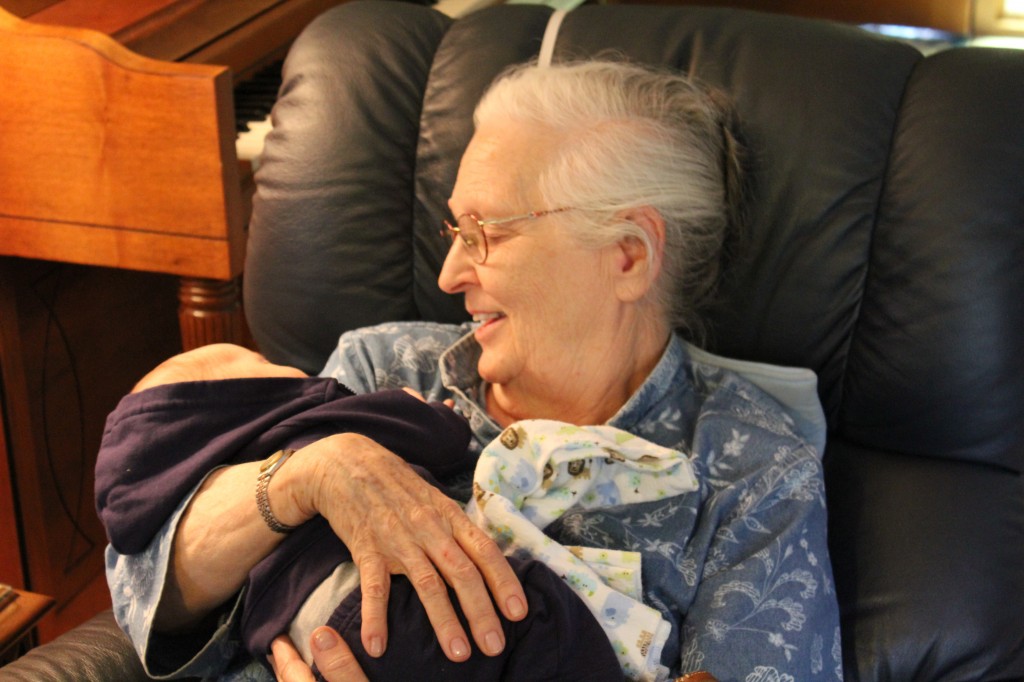As I sit in the breakfast restaurant I feel the kindred spirit of my dad. My dad went out to get a strawberry crepe before he went to visit mom. I ordered a peanut butter pancake, while my wife and son are in Ontario. Its like the adventure,”no one is watching lets eat something sweet for breakfast.” But the difference between dad and I end there: in a couple of days my wife and son will be home, but my mom is not coming home – she is in a “memory care” center, living out the remainder of her days because a disease has robbed her mind.

One of the last times we got to visit mom at home, before she became too ill to stay there.
It has been difficult for dad, as well as my brother, and I to watch mom go through this deterioration. We didn’t want to believe it; we wanted to think it was something else-her medicine, her seizures, her depression. It was a rapid decline from a woman who for over 65 years was my dad’s companion, who every morning would get up- clean the house, go outside and work in her garden and then the two of them would go to breakfast together. In what seemed like a short period of time she retreated from that world to just sitting in a chair.

My parents in 1991 – married 43 years at the time. They were able to live together for over 65 years
The golden years were not kind to mom. First macular degeneration stole her vision; she can see shapes, and light, but cannot read. She had to give up cooking because she couldn’t read the settings on the stove, or tell when food was properly cooked, and my mom is the best cook I know. Her hearing started to leave her, and since my dad has a low voice, it was hard for her to hear the man she loves.
Then she became confused. It was difficult to tell because mom has suffered from temporal lobe epilepsy for years and after a seizure mom was always, to quote her,”out of it.” She was having more of the temporal lobe seizures, but then we noticed more confusion, especially at night when she would say, “What am I suppose to do now?” Dementia isn’t kind, because you know what is happening to you, and at one point she said that she thought she should get turned over to the state because she just wasn’t any use to anyone anymore.
Two hospitalizations later, we made trips back to Oregon to see how she was. At times she seemed just fine- but then she would drift off again.The last time she went to the hospital they diagnosed her with a rapid progression of dementia. It was time to find a place for her to go where she could be taken care of around the clock, by amazing people who dedicate their lives to this.

One of the happiest moments of mom’s life- when she got to hold her only grandson for the first time.
It isn’t easy. Mom now will spit it out if she doesn’t like it. When mom was well, always the lady, would never have done that- but now she will spit it out at the people who serve it – unless it is my dad.
For dad, waking up and not having mom next to him in bed is hard. Imagine for over 65 years you wake up to the same person, have daily conversations with them, and then it is gone. I’ve only seen my dad cry a couple of times in life, the last time was when my brother died. He has had a lot of tears now.
Talking to dad everyday is a joy- and we share our “secret” moments of having gotten away with eating something sweet. The truth is, both of us would rather have our family back and eating with sensibility.
It made me realize something: when there is a “bad” moment between my wife and I – an angry look, or a misunderstanding, I have to go out of my way to make sure there are a lot more moments where she is happy – be it scratching her back, smiling at her, complimenting her. Life ends all too soon- so when my wife and son come home I am going to hug them extra hard, because the tears of joy will someday end in tears of sorrow, and I want as much joy as I can get while I can get it.
